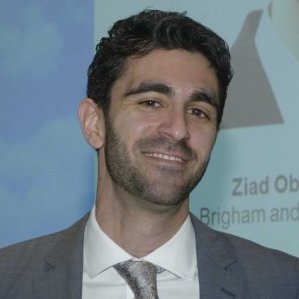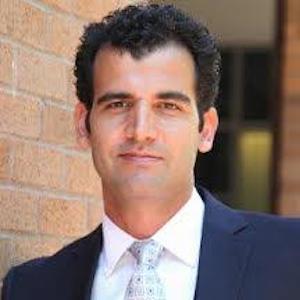
Michael Halle, Ph.D.
Medical Need
Liver transplant is currently the only cure for cirrhosis. Liver transplant teams must identify the patients who most urgently need transplantation but who are also well enough to survive the procedure. Today, prioritization for liver transplant uses a score called MELD that is based on blood tests. However, a patient’s MELD score may fail to fully capture potentially life-threatening symptoms of cirrhosis such as a risk for internal bleeding (varices) or devastating infection (ascites).
Current Research
Dr. Halle’s multi-disciplinary team of doctors, computer scientists, radiologists and hepatologists are using artificial intelligence methods to discover patterns of liver disease hidden in a patient’s magnetic resonance imaging (MRI) scans. By comparing image features collected from the scans of hundreds of patients both with and without cirrhosis, they’ll identify characteristic patterns of the disease symptoms and correlate them with the patients’ MELD scores and clinical observations to produce a better, more comprehensive measure of liver disease.

Ziad Obermeyer, M.D., M.Phil.
Medical Need
Access to data has transformed the way entire industries interact with individuals—as consumers, voters, genomes, and more—but health data are still analyzed with methods developed in the 19th century.
Our work applies methods from machine learning, biostatistics, and econometrics to the complex world of medical diagnoses, interventions, and outcomes.
Current Research
Our goal is to translate large observational datasets into new ways to understand and improve the life and death decisions that providers and patients make every day, in the US and across the world.
More at: LabSysMed

Hadi Shafiee, PH.D.
Medical Need
The selection of the best quality embryo during an in-vitro embryo culture and before its transfer to a patient remains the most important factor in achieving successful ART-based pregnancies and still is a significant challenge in the field of embryology. We overcome this challenge by employing an artificial intelligence (AI) algorithm trained to automatically classify human embryos at three discrete clinically relevant stages of embryonic development and aid hierarchical selection of the embryos, based on quality, for transfer.
More at: Shafiee Lab
Current Research
Dr. Shafiee is particularly interested in developing mobile health diagnostics through utilizing advances in consumer electronics, computer programming, nanotechnology, and optical/electrical/magnetic sensing modalities.
The technologies being developed at his lab has broad applications in medicine and biology including applications in the detection and treatment monitoring of infectious diseases, infertility, and cancer.

Adam Wright, Ph.D.
Medical Need
Healthcare costs are growing rapidly and medical errors and quality gaps occur frequently throughout the healthcare system. Electronic health records (EHRs) have been proposed as a solution to these problems, but users are often frustrated with the current generation of EHRs. Our goal is to improve the quality and safety of clinical care by designing intelligent, intuitive, enjoyable EHRs that have sophisticated logic, learn dynamically, and anticipate user needs in support of high quality care.
Current Research
Clinical decision support: We design and study rule-based and AI-based clinical decision support tools which are deployed through EHRs to help clinicians make better diagnosis, treatment and screening decisions, and
Clinical machine learning: With the adoption of EHRs, we now routinely collect terabytes of data on patients, including medications, problems, test results, images and clinical narratives. Our group designs and evaluates new machine learning algorithms to make sense of this data, detect patterns and spot opportunities to intervene and improve care.
Safe and effective use of EHRs: We are designing new workflows and user interactions for EHRs that are faster, more accurate and more enjoyable, and studying them in the real world. Recent projects have focused on improving the display of microbiology data, making problem lists work better and redesigning medication ordering workflows.
More at: WrightLab

Li Zhou, M.D., PH.D.
Medical Need
A significant portion of biomedical information is stored in free text. Natural language processing (NLP) techniques unlock and transform unstructured text to a structured form, so that the information can be further used by subsequent automated applications to support other tasks, such as patient management, quality reporting, automated coding, data mining, decision support, medical error detection, and so on.
Current Research
Dr. Zhou’ NLP research team has designed and implemented a generic and highly configurable NLP system known as the Medical Text Extraction, Reasoning and Mapping System (MTERMS), which has been effectively applied to various clinical domains and documents. For example, MTERMS was integrated with the Longitudinal Medical Records (LMR) system and successfully piloted at two BWH clinics to assist with medication reconciliation in real-time. This project was among the first to move NLP-based technology from the traditional “research” mode to “real-time” use in patient care.
Dr. Zhou’s team has also been exploring other innovative applications of NLP, including processing complex free-text malpractice claims to enhance coding and data analytics, developing predictive risk models, and detecting errors in dictated clinical documents generated by speech recognition software. Concurrently with these NLP efforts, her team has also evaluated significant problems with data quality and has made important contributions to data representation standards, particularly in the areas of allergies, medications, family history, and structured documentation.


